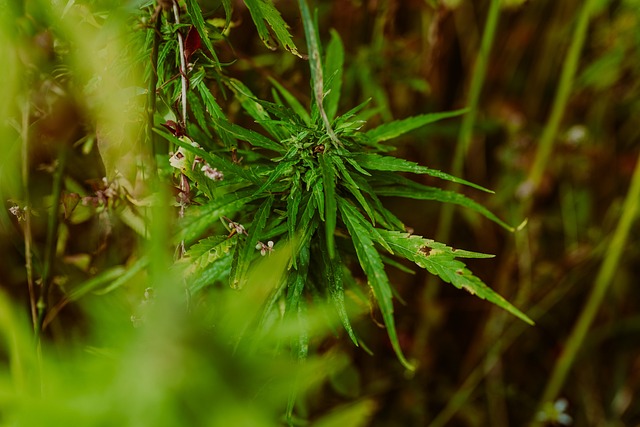The therapeutic potential of THCA flower, a non-psychoactive cannabinoid found in cannabis, is under scientific scrutiny for its anti-inflammatory and analgesic properties. Unlike THC, it doesn't induce intoxication, making it a potential wellness aid. Users are advised to follow dosage guidelines tailored to their individual needs and sensitivities when incorporating THCA flower into their health regimen. Proper storage is crucial for maintaining its efficacy. It's important to consult healthcare professionals before use, especially for those on other medications or with pre-existing conditions. The research on THCA is ongoing, but initial studies suggest it may offer benefits without cognitive impairment. Dosage guidance is essential for safety and effectiveness, and individual factors like weight and tolerance play a significant role in determining the right amount. As the understanding of THCA grows, so does the need for precise dosing to maximize its therapeutic benefits. Quality of product and sourcing are critical for both safety and potency. Always start with a low dose, monitor effects, and adjust as necessary, adhering to expert advice for a balanced and informed experience with THCA flower.
Discover the transformative properties of THCA (Tetrahydrocannabinolic Acid) Flower, a cannabinoid-rich hemp derivative that’s garnering attention in wellness circles. This comprehensive guide explores the multifaceted benefits of THCA Flower, from its anti-inflammatory and pain-relieving properties to its potential role in promoting neuroprotective and gastrointestinal health. Dive into understanding how THCA Flower differs from other cannabis forms, the science behind it, and how to source high-quality flowers. Learn about dosage guidelines for safe consumption and how to incorporate this plant compound into your daily wellness routine. From the legal landscape to interaction with medications, we cover all aspects ensuring you’re fully informed. Join us as we navigate the therapeutic benefits of THCA Flower, its efficacy, and the future of research in this burgeoning field. Whether you’re a seasoned user or new to cannabinoids, this article provides valuable insights for personalizing your THCA experience based on individual needs and goals.
- Unlocking the Potential of THCA Flower: An Overview
- The Science Behind THCA: A Cannabinoid Primer
- Sourcing and Quality Considerations for THCA Flowers
- THCA Flower vs. Other Cannabis Forms: What Sets It Apart?
- Dosage Guidelines for THCA Flower Consumption
Unlocking the Potential of THCA Flower: An Overview
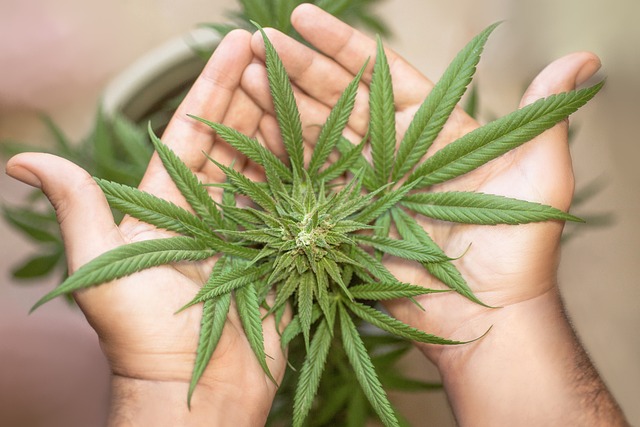
The therapeutic potential of THCA, or tetrahydrocannabinolic acid, a non-psychoactive cannabinoid found in raw cannabis plants, is gaining recognition. THCA flower, rich in this compound, presents a unique opportunity for those interested in the benefits of cannabis without the psychoactive effects associated with its more well-known form, THC. As research evolves, users are exploring THCA flower for its promising properties, including anti-inflammatory and analgesic effects, which could be beneficial for managing pain and inflammation. Unlike its decarboxylated counterpart, THC, THCA does not induce intoxication, making it a more suitable option for individuals sensitive to psychoactive substances or those who wish to harness its potential health benefits during the day without impairment.
Dosage guidelines for THCA flower are crucial for optimizing its effects and ensuring safety. Users should start with a low dose to gauge their body’s response, as individual sensitivities vary. It is recommended to consult with a healthcare provider before incorporating THCA flower into one’s wellness regimen, especially if taking other medications or dealing with underlying health conditions. The dosage can be gradually increased based on personal tolerance and the desired therapeutic outcome. Proper storage of THCA flower in a cool, dry place away from direct sunlight will help maintain its potency. As the interest in cannabinoids like THCA continues to surge, it is imperative to approach their use with both curiosity and caution, adhering to established dosage guidelines for a safe and effective experience.
The Science Behind THCA: A Cannabinoid Primer
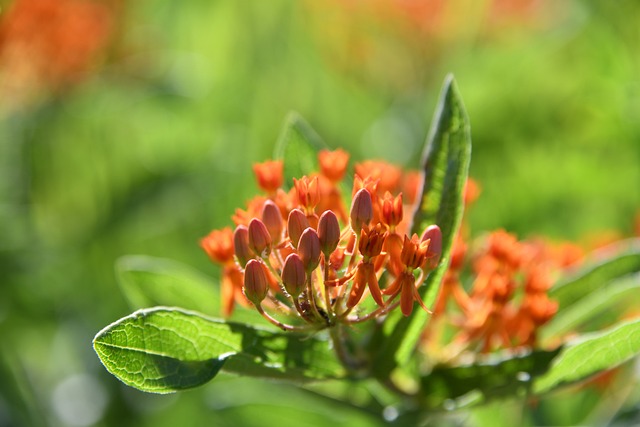
Tetrahydrocannabinolic acid (THCA) is one of the most prevalent cannabinoids found in the cannabis plant, second only to THC (tetrahydrocannabinol). Unlike its psychoactive counterpart, THCA exists naturally in hemp and cannabis flowers and possesses a distinct set of properties that are gaining scientific interest. Research indicates that THCA interacts with the body’s endocannabinoid system, which regulates various functions and maintains homeostasis. This interaction is believed to influence pain, inflammation, and anxiety without the psychoactive effects associated with THC.
The therapeutic potential of THCA has been a subject of recent studies, suggesting it may offer benefits for a range of conditions. These include neuroprotective properties that could benefit neurological disorders, anti-inflammatory effects useful in managing pain and inflammation, and potential anti-nausea effects. While the therapeutic window for THCA flower dosage guidelines is still being defined, it’s crucial for users to approach its consumption with caution. Recommended dosages can vary widely depending on individual factors such as body weight, tolerance, and the specific condition being addressed. It’s advisable to consult with a healthcare professional before incorporating THCA flowers into any wellness regimen, ensuring safe and effective use based on one’s unique health profile. As research continues to evolve, dosage guidelines may become more refined, providing clearer guidance for those looking to explore the benefits of THCA-rich cannabis products.
Sourcing and Quality Considerations for THCA Flowers
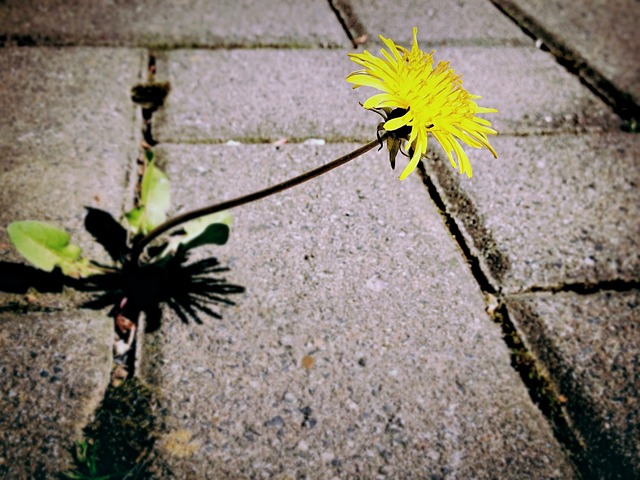
When incorporating THCA flowers into one’s wellness routine, the sourcing and quality of the product are paramount for both efficacy and safety. The most beneficial THCA flower experience begins with selecting a reputable supplier. It is crucial to research and verify the legitimacy of the source, ensuring that the THCA flowers are grown under clean, controlled conditions free from contaminants. The quality of the soil, the growing practices, and the extraction methods used to preserve the integrity of THCA all play significant roles in the product’s potency.
Consumers should be aware of THCA flower dosage guidelines to avoid overconsumption and ensure a safe and controlled intake. Dosage can vary widely based on individual tolerance, desired effects, and product potency. It is advisable to start with a low dosage and gradually increase as needed while monitoring personal responses. Consulting with a healthcare professional or a knowledgeable retailer is highly recommended when determining the appropriate THCA flower dosage for one’s specific needs. Proper dosing not only enhances the therapeutic benefits of THCA but also promotes a positive experience with this promising cannabinoid.
THCA Flower vs. Other Cannabis Forms: What Sets It Apart?

The THCA flower, rich in tetrahydrocannabinolic acid (THCA), represents a distinct form within the cannabis plant’s spectrum. Unlike its decarboxylated counterpart, THC, THCA exists naturally in raw cannabis plants and possesses a unique set of properties. One of the notable differences is its non-psychoactive nature at this stage; THCA must undergo heat to convert into THC, which then produces the psychoactive effects commonly associated with cannabis. This precursor compound offers potential benefits for individuals seeking the therapeutic effects of cannabinoids without the altered state typically induced by THC.
When considering THCA flower dosage guidelines, it’s important to approach it with caution due to its potency. Unlike smoked or vaporized flowers where the heat activates THC, THCA flower consumption methods such as infusions, tinctures, or edibles allow for more precise dosing. Users should start with a low dose to gauge effects, as THCA’s effects may differ from those of THC or CBD. The therapeutic potential of THCA includes anti-inflammatory, neuroprotective, and anti-nausea properties, which set it apart from other cannabis forms. Users interested in exploring the benefits of THCA should adhere to dosage guidelines provided by knowledgeable professionals or reputable sources, ensuring a safe and informed experience.
Dosage Guidelines for THCA Flower Consumption
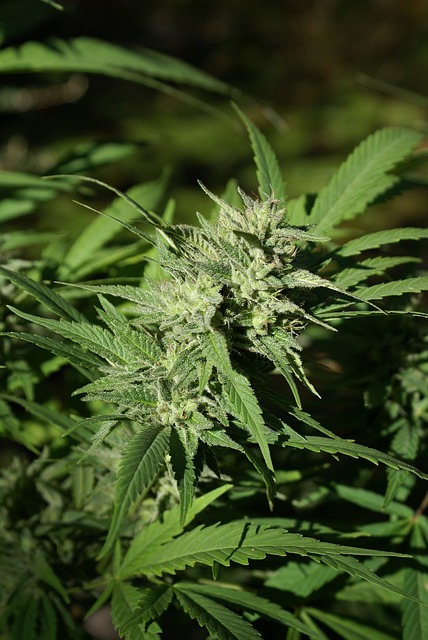
When incorporating THCA flower into your wellness routine, adhering to appropriate dosage guidelines is paramount for an optimized experience and safety. THCA, or tetrahydrocannabinolic acid, is the raw form of THC found in raw cannabis or hemp flowers before heat degradation converts it to THC. Unlike its psychoactive counterpart, THCA is non-psychoactive but has shown potential for various therapeutic effects, including anti-inflammatory and neuroprotective properties.
The recommended dosage of THCA flower can vary based on individual tolerance, the specific health condition being addressed, and the potency of the product. As a general starting point, users may begin with a small dose of 1-2 milligrams of THCA per day. This amount can be increased gradually, in increments of 1-5 milligrams every few days, to assess individual reactions and effects. It’s important to note that the effects of THCA can take longer to manifest compared to other cannabinoids, often taking several hours to fully set in. Therefore, users should allow sufficient time before deciding on dosage adjustments. Consumption methods also influence bioavailability; for instance, smoking or vaporizing THCA flower will result in quicker onset of effects than ingesting THCA-infused edibles. Always prioritize personal well-being by starting low and going slow, and consult with a healthcare professional before integrating THCA flower into your health regimen, especially if you have underlying health conditions or are taking other medications.
THCA flower, a natural cannabinoid-rich substance, offers a range of potential benefits, with its efficacy rooted in scientific research. As detailed in ‘Unlocking the Potential of THCA Flower: An Overview,’ and elaborated upon in ‘The Science Behind THCA: A Cannabinoid Primer,’ understanding THCA’s unique properties is key to appreciating its role in health and wellness. Quality and sourcing are paramount when procuring THCA flowers, as highlighted in ‘Sourcing and Quality Considerations for THCA Flowers.’ When comparing it to other cannabis forms, THCA stands out due to its distinct characteristics. For those considering incorporating THCA flower into their routine, the ‘Dosage Guidelines for THCA Flower Consumption’ section provides valuable insights to ensure a safe and effective experience. In essence, THCA flower is a versatile and beneficial addition to one’s health regimen when approached with knowledge and discernment.
